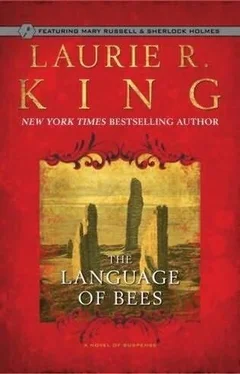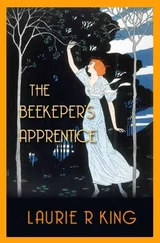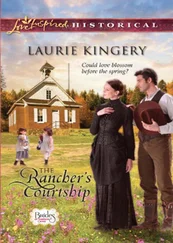I drew a slow breath, then let it spill. Counting to twenty, I opened my fingers on the knob to let the door drift open, then took a step around it into the bedroom. Sounds from the lavatory assured me that Millicent Dunworthy was occupied for the next half minute or so. I pressed myself to the narrow swath of wall separating the two doors, and craned my neck forward a fraction of an inch-then smiled in relief: Millicent was the sort of lady who automatically closed the lavatory door even when she was all alone. It was not completely shut, and if she happened to be staring directly at the gap, she would see motion, but short of stretching out beneath her bed and hoping I didn't sneeze before she left for work the next morning, this was my best chance for escape.
I stepped briskly on my crepe-soled shoes to the door, then paused. The tinkling sounds had ceased, but over the rising burble from the tea-kettle was something else. Crying. Millicent Dunworthy was weeping softly. I scowled downward as I listened, and my gaze slowly came to focus on the folded newspaper she had laid on the table along with her keys and hand-bag. Here was the explanation of her tears:
ARTIST'S WIFE SLAIN AT LONG MAN
“THE ADDLER” AND SMALL DAUGHTER MISSING
The front door-knob rattled slightly under my hand; if the apartment behind me had been completely still, she would have heard the door coming open, but it was not, and she did not.
I left the shopping basket where it was and hurried down the stairs, my usual light-hearted relief at a successful burglary diminished considerably by that headline: Newsmen baying at our heels were not going to simplify matters one bit.
Outside, the growing heat and the enervating stink and humidity brought my spirits down another peg. My ransacking of Miss Dunworthy's flat had been, in truth, only partly successful. I wanted that book so badly I had even considered snatching it from the desk and stealing it outright. Had I no alternative, I might have risked it.
But I had an alternative-although not during daylight hours.
Which reminded me of Holmes. I walked to the corner and whistled up a cab to take me to the Café Royal.
I arrived a quarter hour late, and found Holmes well on his way to a conquest of Bohemia.
The Sacrifice of Submission: Be clear: Sacrifice is wholehearted, or it is nothing. It must cost dearly: Abraham offering his son; Woden hanging himself in a tree; the Son of Man accepting an agonising death. The greater the cost, the greater the energies freed for Transformation.
Sacrifice is the fame that sets quiescent Power alight,
and consumes the world in a crash and a billow of smoke,
and then in a whisper.
Testimony, II:8
DOMINOES MIGHT NO LONGER BE A FIXTURE IN the Café Royal, but Holmes had summoned a set, and was playing against a man I recognised as one of the foremost bookmakers in London; Holmes was winning. I looked with care around the other tables, not wishing to run into Alice or her Ronnie, but fortunately they were absent.
There was no doubt the Café community knew that Yolanda Adler was dead and Damian was being, as they say, sought for questioning. From the thrilled tones on all sides, it was the foremost topic of conversation.
The same gentleman who had ushered me in on Saturday night now escorted me to where Holmes sat, murmuring my name under his breath as he left. I looked after him in surprise.
“I thought I recognised him the other night,” I said to Holmes, “but he gave no indication that he knew me.”
“Of course not,” Holmes said. “The staff of the Café Royal are nothing if not discreet.”
I ordered something non-alcoholic and waited with little patience for Holmes to finish beating the bookie at dominoes. An importunate newsman made it to the first tables before being pounced upon and thrown out. Finally, Holmes accepted two pounds from the loser, then handed them back with instructions to place them on something called Queen Bea to win the next time she ran. The two men shook hands, the tout taking his beer and his loud check suit away to a table of similarly dressed individuals across the room.
I leant forward over my glass and started in. “I just had a few minutes in Miss Dunworthy's flat,” I began, only to notice that his attention was clearly elsewhere. He put down his glass and rose with a look of mingled resignation and mild amusement.
I swivelled on the red plush seat and saw a small, well-made woman approaching, dressed in gipsy-bright garments, dark eyes sparkling in olive skin. She had the panache of a Cockney, and I was not in the least surprised when she marched up and pumped Holmes' hand; an onlooker might have thought them old friends.
“Mrs Loveday,” Holmes said. “Good to see you again. This is my wife, Mary Russell. Russell, this is Betty Loveday, also known as Betty May.”
I caught myself before I could say, “I've heard of you,” since the knowledge that one has been discussed is never a comfortable one. However, the little thing grinned as if I had voiced my admission, and I thought that she was, in fact, well accustomed to being a topic of conversation.
Holmes gave her a chair, ordered her a drink, and lit her cigarette before turning to me. “Mrs Loveday was in earlier, when I was talking to a mutual friend about Damian Adler. She seems to think that Mrs Adler might have been murdered because of her interest in things spiritual.”
The small face and dark eyes fixed on me. “Do you know Aleister Crowley?”
“The spiritual ch-” I caught myself, and changed charlatan to “-leader? I've never met him personal-”
“Never, never go near him! He is a demon in human guise. I am risking my sanity merely entering this place, where he sometimes comes to gloat and to hunt for fresh victims.”
I looked at Holmes, startled, but he was busying himself with tobacco.
“Er,” I said.
“The Mystic killed my dear, loving husband Raoul. He tempted Raoul and hypnotised him and then led him into hell in Sicily,” she declared.
It was, judging by the tempo of her storytelling, a well-worn tale, and I wasn't at all sure why Holmes had inflicted it on me. He smoked and drank and after a while caught the waiter's eye and ordered three meals, as our Bohemian Ancient Mariner churned on with a recital of drugs and ill health and the terrible knowledge that her beautiful young undergraduate was being degraded and trampled into the mud of morality by the detestable Crowley.
Our meal arrived, and I gladly dug into it, nodding attentively as she wound through a detailed account of the Crowley monastery in Sicily, where sex and drugs were central to worship, and the only God was Crowley. There is little new under the sun, when it comes to religion-the only truly distasteful part of it was the presence of children, although it sounded as if they were kept away from the drugs and the orgies.
Short of walking out on her in mid-sentence, I could not think of a way to stop her. I concentrated on my meal, listening with half an ear to her sad and unsavoury story, until I felt a sharp tap of another shoe against my own. Looking up, I saw Holmes watching me; I obediently returned my attention to the woman.
“He hypnotised my Raoul, and took away his inner strength by drugs, until Raoul had not enough will left to resist when The Mystic told him to commit murder.”
“Murder?” I repeated, startled.
“Yes, of a cat. She was a small and harmless cat, but she scratched The Mystic one day when he frightened her, and so he told Raoul that she was an evil spirit and had to be sacrificed. And Raoul had to do it.”
“Good heavens.”
“Yes! Raoul! Who wouldn't hurt a fly, but would catch it and put it outside. They all had to gather around in their robes and chant and then Raoul had to take the knife, and they… they had to drink the blood, and my poor Raoul got sick and died from it, from drinking the poor cat's blood.”
Читать дальше












